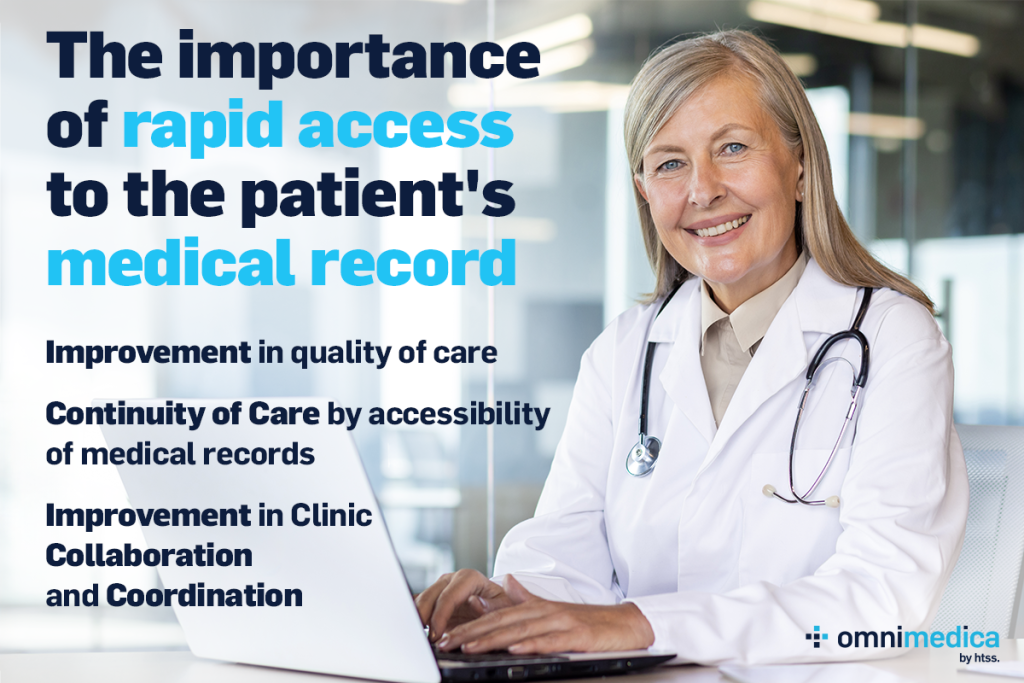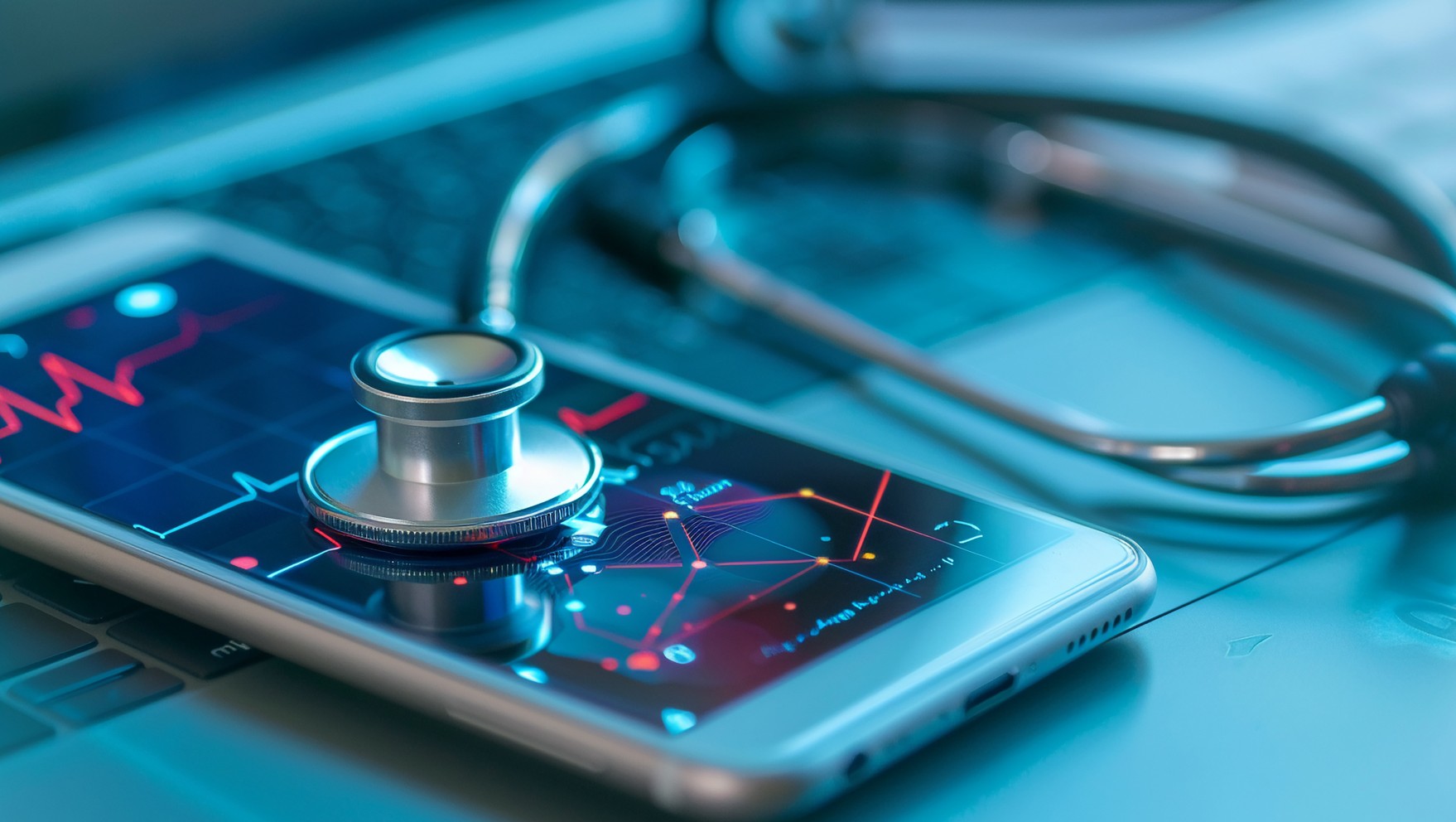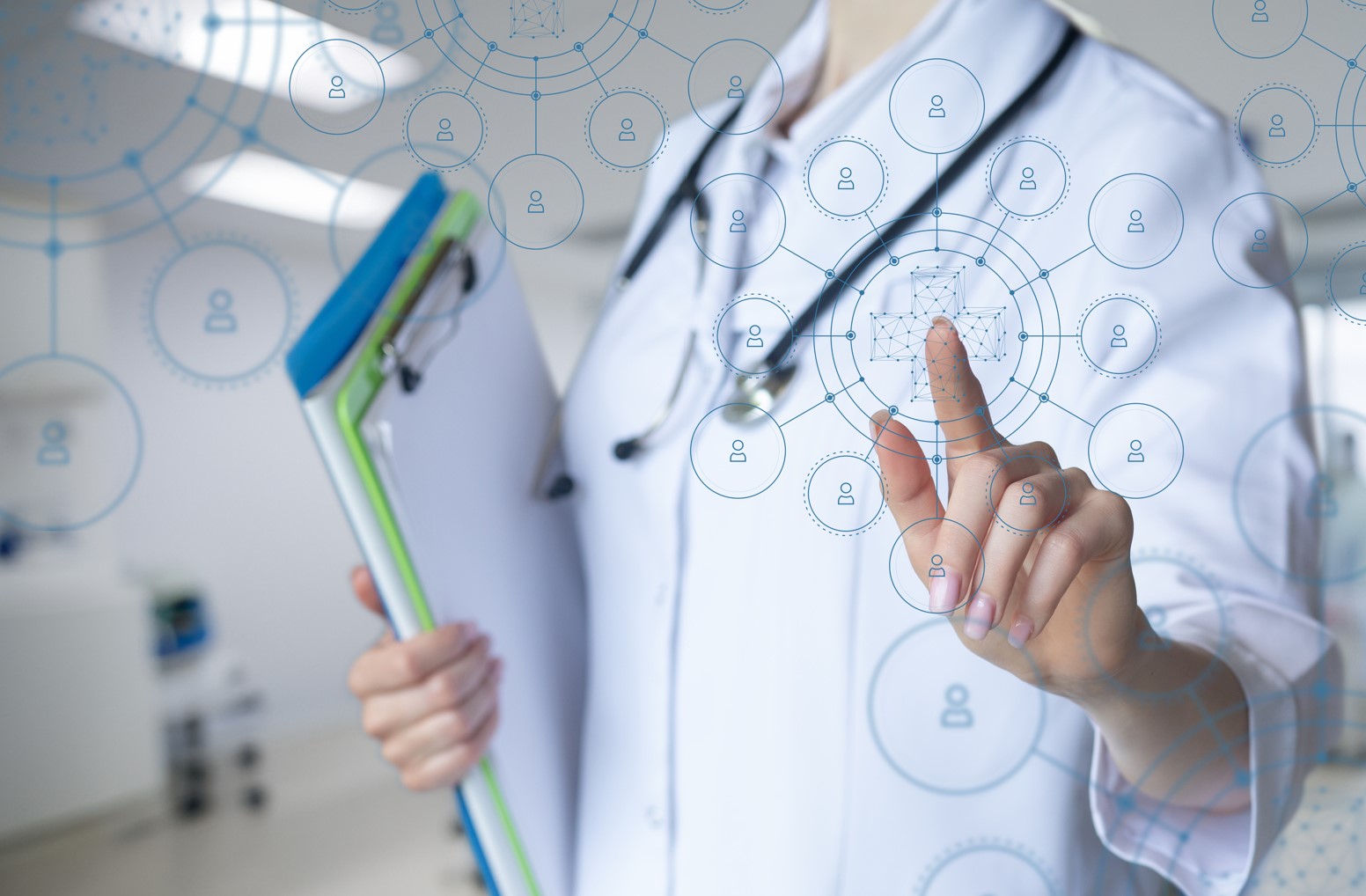The ability to easily access a patient’s medical information is more than just an attractive feature of modern healthcare systems; it is a necessary component of an excellent healthcare system. Delays in accessing patient information can have major effects, both on patient health and on the way clinics operate.
Electronic medical records (EMRs) have transformed the way medical data is stored and can be obtained. The concept of “one-click” access to a patient’s medical information marks a substantial shift away from traditional paper records and towards digital platforms that value efficiency and accessibility.

Improvement in quality of care
The availability of patient medical records can lead to a major improvement in the quality of care provided by a clinic. This wealth of information allows healthcare providers to make informed decisions quickly, leading to better patient outcomes. The availability of medical records has particular advantages in terms of managing time-sensitive situations and specific patient cases. Healthcare providers can quickly learn crucial information about patients’ conditions, enabling them to make quick and informed decisions about the appropriate course of action, potentially saving the patient’s life.
Continuity of Care
Continuity of care is another important factor influenced by the accessibility of medical records. The availability of detailed patient information is essential to ensure a smooth flow of information between different health facilities and experts. This continuity not only improves the quality of care but also minimises the risk of medical errors and avoidable hospital readmissions.
Improvement in Clinic Collaboration and Coordination
Many people receive care from several healthcare providers with different specialisations, which may often be within the same clinic. Rapid access to medical records promotes collaboration and coordination between different providers, ensuring that each member of the healthcare team is knowledgeable and consistent in their approach to patient care. A unified collection of medical information improves communication and encourages a comprehensive approach to patient care.
With the introduction of telemedicine and remote medical consultations, access to medical records has become increasingly important. Healthcare providers who conduct virtual visits need uninterrupted access to patients’ medical records in order to provide comprehensive care remotely. Rapid access to medical data enables continuity of care regardless of geographical constraints.
Omnimedica provides healthcare providers with an easy-to-use platform to access patient information securely and seamlessly.



